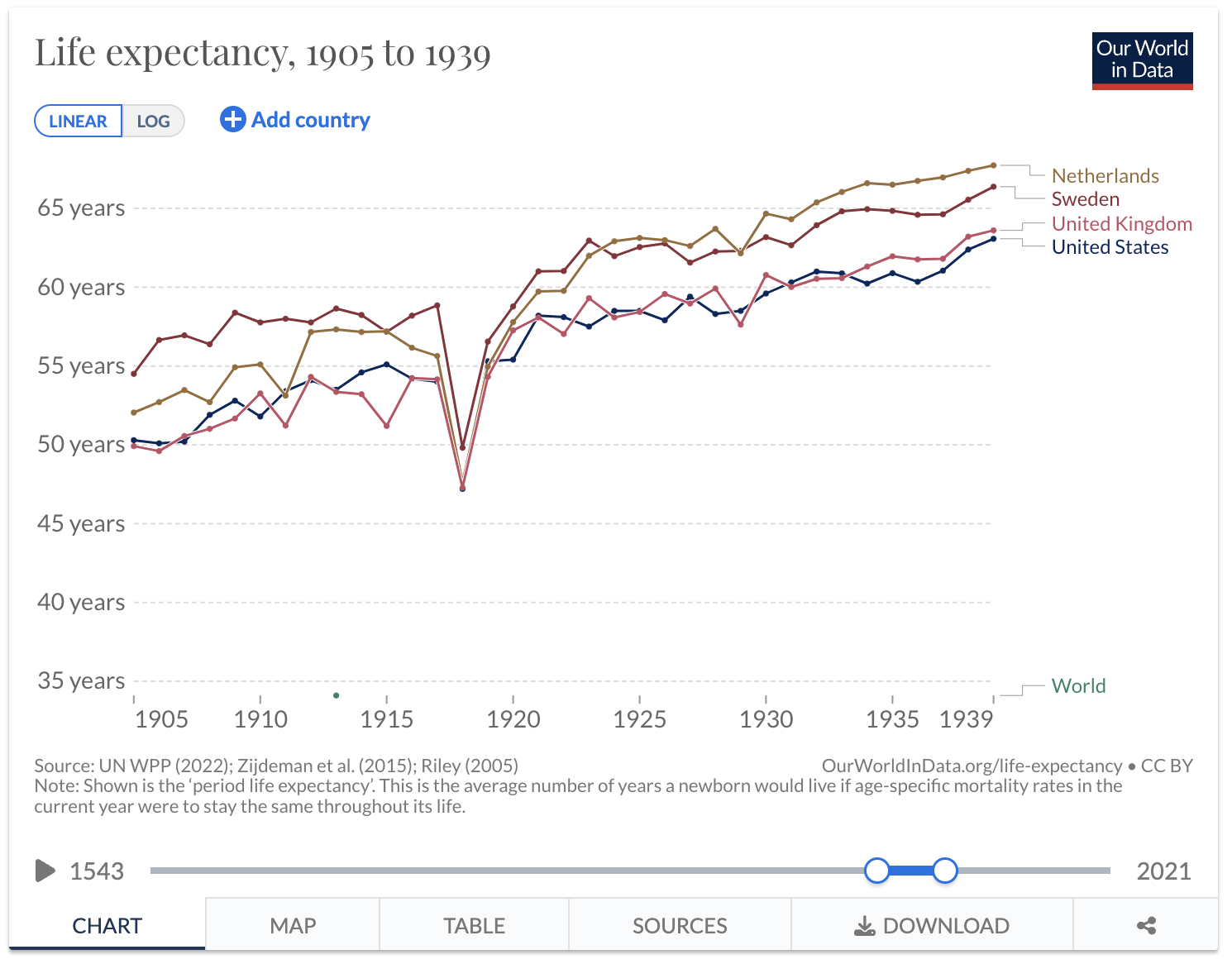This question resolves to "YES" if the CDC-published life expectancy at birth for 2029 exceeds that of 2019, "NO" if it does not (or is equal to within 0.1 years). If the CDC no longer publishes life expectancy figures in 2030, resolution will be based on the most similar comparable US government figures for which data is available from 2019 to 2029. This market resolves "N/A" if whole-population life expectancy figures which compare 2019 and 2029 to within 0.1 years are not available in 2030.
Context
The CDC has recently published figures showing that life expectancy at birth declined by 1.8 years in 2020 and 0.9 years in 2021, from 78.8 years in 2019 to 76.1 years in 2021: https://www.cdc.gov/nchs/pressroom/nchs_press_releases/2022/20220831.htm
Oct 25, 1:03pm: Will US life expectancy recover from Covid by 2030? → Will US life expectancy recover from its 2020-2021 "Covid" drop to exceed its 2019 level by 2029?
People are also trading
US life expectancy has already recovered to pre-Covid levels... and set a new record. That's based on the 2024 United Nations data. Here are the recent numbers:
2012: 78.82
2013: 78.82
2014: 78.88
2015: 78.72 (-0.08)
2016: 78.69 (-0.03)
2017: 78.65 (-0.04)
2018: 78.80
2019: 78.92
2020: 77.01 (-1.91)
2021: 76.38 (- 0.63)
2022: 77.98 (+1.60)
2023: 79.3 (+ 1.32)
@MaxMore More recently, I have seen different and slightly less positive numbers. Of course these numbers get revised over time. Still, we have four years to go and I expect that the US will exceed the 2019 life expectancy numbers, partly as a natural rebound but also because of growing use of GLP-1 drugs.
Initial numbers (based on first six months) suggest that US life expectancy increased by 1.07 years in 2022. https://www.medrxiv.org/content/medrxiv/early/2023/03/01/2023.02.26.23286363.full.pdf
@B Pandemic isn't the main factor in this, it's really about whether other factors will cause the life expectancy to continue dipping.
@egroj Deaths of despair from a country and a public clearly happy to shovel them into Moloch's furnace so they can go to Applebee's; heart disease as one of the most famous COVIDary sequelae. I still count both as heavily contributed to by COVID.

